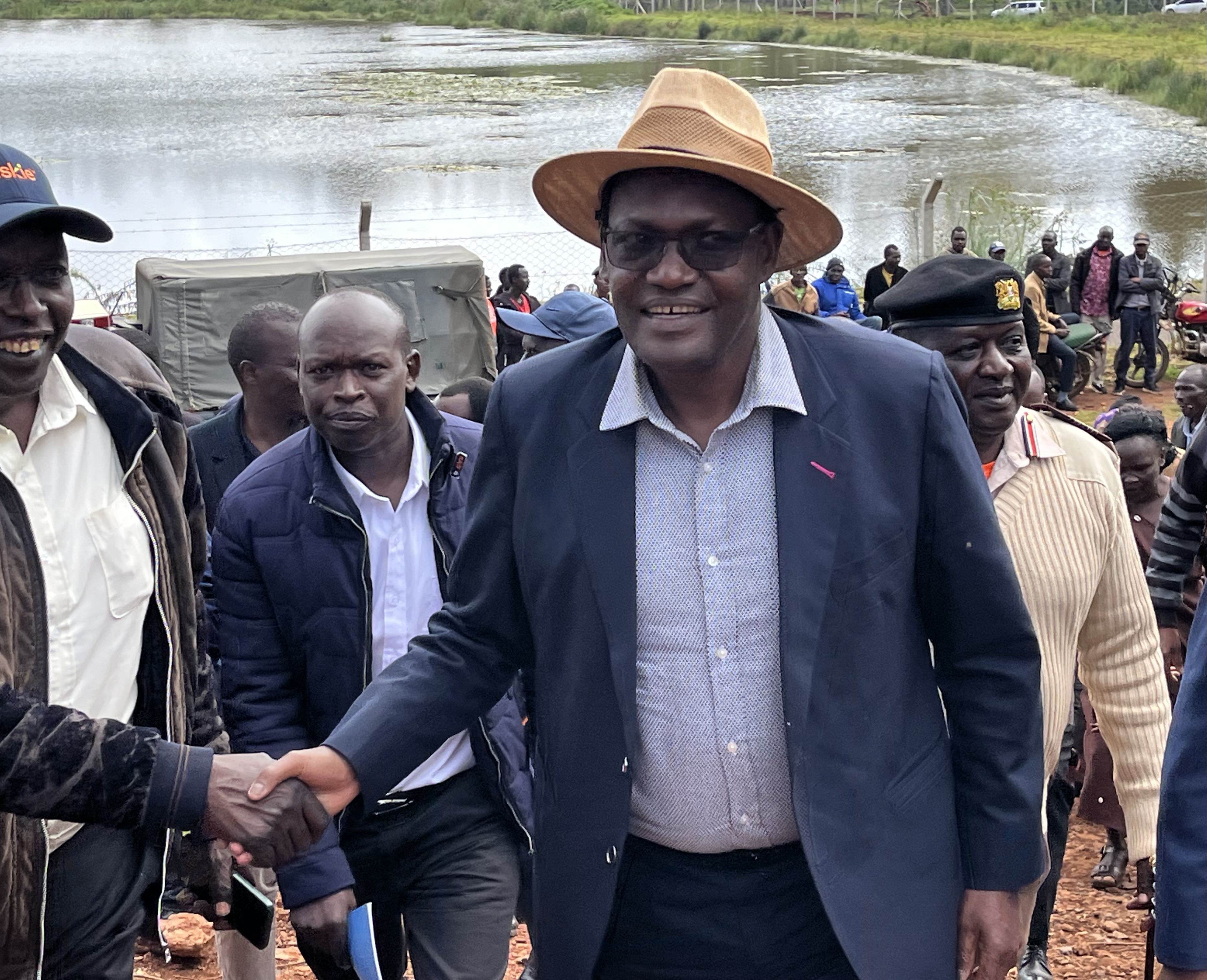 Treasury PS Dr Chris Kiptoo is welcomed by residents during a conservation activity near Kaptagat Forest in Elgeyo Marakwet county./MATHEWS NDANYI
Treasury PS Dr Chris Kiptoo is welcomed by residents during a conservation activity near Kaptagat Forest in Elgeyo Marakwet county./MATHEWS NDANYI
More than 28,000 households will benefit from the ongoing Kaptagat Integrated Conservation Programme which aims to conserve the forest ecosystem in Elgeyo Marakwet County.
Forestry Secretary George Tarus said implementation of the conservation and community empowerment plan is going on well ahead of the ninth edition of the conservation programme.
The programme is spearheaded by PS for Treasury Dr Chris Kiptoo who is the patron, and has been leading the community and stakeholders to plant trees and implement empowerment activities.
The ninth edition will be held on Friday July 12 and is expected to be presided over by President William Ruto.
PS Kiptoo has been passionate about the Kaptagat conservation plan and has earned accolades from the community and internationally because of the unique conservation initiative.
Tarus spoke ahead of the main event during which organisers are planning to complete planting trees on the remaining 34 hectares that is part of the Kaptagat ecosystem.
“We have enhanced the livelihoods improvement programme through distribution of seedlings for high value crops like avocado, macadamia, and others,” Tarus said.
The secretary said degradation of the Kaptagat ecosystem was not acceptable because it serves as a major water source for the region.
“To address the forest degradation there must be deliberate efforts to attack the drivers of that degradation and one such driver is poverty within the neighbourhood communities,” he said.
Through the programme, he said they were working with the community to encourage intensive dairy farming through issuance of high breed livestock to benefit the neighbouring households.
Tarus said they would ensure each of the targeted households has at least an acre of fodder to feed the livestock and also an acre of cash crop through an agroforestry system.
Commercial grazing is prohibited by the law in all forests including the Kaptagat ecosystem.
“If there is grazing then the community is the one to enjoy grazing rights but controlled through participatory management and through agreements signed with the Kenya Forest Service,” he said.
Tarus said part of the plan is to fence off the 273km round the ecosystem.
“This will be done through a consultative process that will include benchmarking in areas where it has been done so that the community can appreciate the importance of fencing.”
He said the residents would be taken for benchmarking in Mt Kenya, Kakamega and Masai Mau, Aberdare, and SouthwestMau forests.
“Fencing is one of the ways to ensure full integrity in protecting and conserving our forests for the benefit of current and future generations,” Tarus said.
He said they would ensure the community is fully involved so they appreciate the importance and own the programme.
As part of the programme, a cycling event was also hosted in the area.












